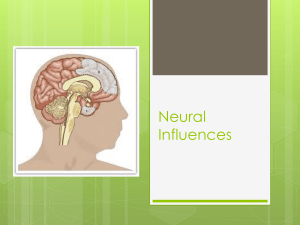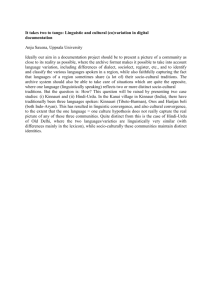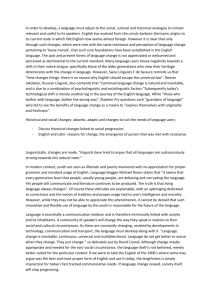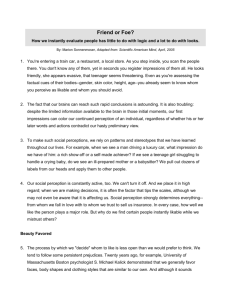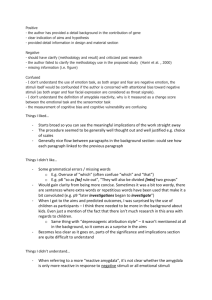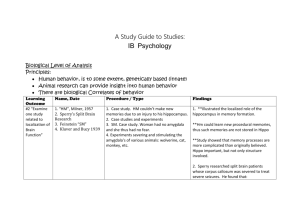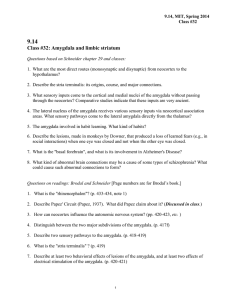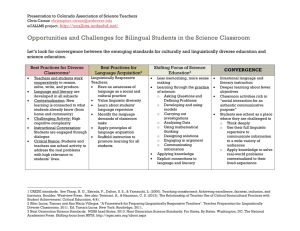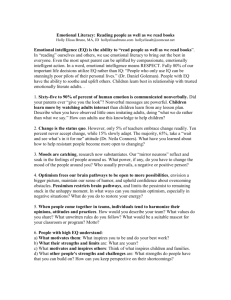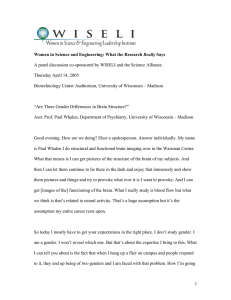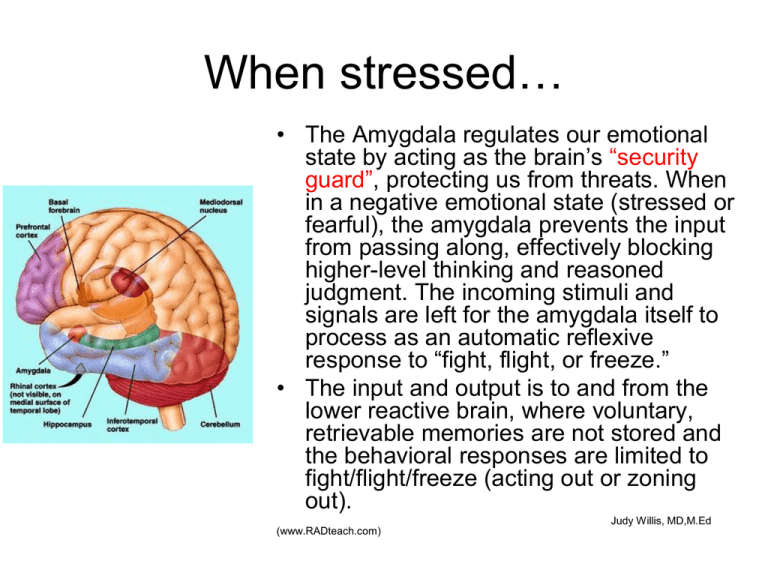
When stressed…
• The Amygdala regulates our emotional
state by acting as the brain’s “security
guard”, protecting us from threats. When
in a negative emotional state (stressed or
fearful), the amygdala prevents the input
from passing along, effectively blocking
higher-level thinking and reasoned
judgment. The incoming stimuli and
signals are left for the amygdala itself to
process as an automatic reflexive
response to “fight, flight, or freeze.”
• The input and output is to and from the
lower reactive brain, where voluntary,
retrievable memories are not stored and
the behavioral responses are limited to
fight/flight/freeze (acting out or zoning
out).
Judy Willis, MD,M.Ed
(www.RADteach.com)
Research Says…
• “…word poverty seems most prevalent in populations
largely made up of students from minority’, English
language learning, or low socioeconomic backgrounds.”
• “…upon matriculation into 1st grade, “linguistically
advantaged” students know approximately 20,000
words, whereas “linguistically disadvantaged” students
know only about 5,000.”
• “…linguistically disadvantaged students suffer from
partial knowledge of word meanings, confusion over
similar-sounding words, and limited knowledge of how
and when to use words.”
(Moats, 2001)
SO HOW CAN WE INCREASE OUR
STUDENTS’ EXPERIENCE BANK?
• Experiential Education
• Wide Area Reading
• VOCABULARY INSTRUCTION
• (Building Academic Vocabulary) – The
Basics of Effective Learning.
Research Says…
• Background knowledge of vocabulary is
essential to developing fluency and
comprehension.
• Systematic vocabulary instruction is one of
the most important instructional
interventions that teachers can use,
particularly with struggling students.
Cultural Sensitivity when teaching!
Now What….
• Who are the Aboriginal students?
»How are they doing?
» Socially, emotionally, academically
What can we do differently?
• Here’s what...
•So What?
»Now what?
As LEADERS we have a moral obligation to…
Everyone who enters school in Yukon
will have the opportunity to
successfully complete their education
with dignity and purpose, well prepared
to enter the next phase in their lives.
Developing the Whole Child
Intellectual and
Academic
Success for
Each Learner
Social and
Emotional
Physical and
Cultural
Futures Wheel
Topic:
Task Groups:
+
• On chart paper, draw a circle in
center of paper and label with
the topic (e.g. event, innovation or
Success for EACH
Aboriginal student
issue)
Groups at Work- Copyright MiraVia LLC – All rights reserved
Topic
+
• Draw four circles for first
layer; labeling two
negative and two positive
effects
-
-
Futures Wheel
+
• Move to third layer
using same process
+
+
• For second layer, add a
positive and negative
effect for each outcome
from first layer
+
Topic
-
-
-
+
Groups at Work- Copyright MiraVia LLC – All rights reserved
+
• Examine and discuss results
including most positive and
negative effects in third layer
-
Covey – One of the 7 Habits of Highly
Effective People
• “Seek first to understand”: We (as educators) typically
seek first to be understood. Most people do not listen
with the intent to understand; they listen with the intent to
reply.” They’re either speaking or preparing to speak.
They’re filtering everything through their own paradigms,
reading their own autobiography into other people’s
lives.”
• Empathic listening (the highest form of listening).
Listening with intent to understand. I mean seeking first
to understand; to really understand.
• …Let me humbly accept this new culture and through it
rise up and go on. Like the thunderbird of old, I shall rise
again out of the sea; I shall grab the instruments of the
white man's success - his education, his skills. With
these new tools I shall build my race into the proudest
segment of your society. I shall see our young braves
and our chiefs sitting in the houses of law and
government, ruling and being ruled by the knowledge
and freedoms of our great land.
Chief Dan George
Màhsi’ choo (Gwich’in)
Mä̀ hsi’ cho (Hän)
Máhsin cho (Northern Tutchone)
Tsin’jj choh (Upper Tanana)
Sógá sénlá’ (Kaska)
Shä̀ w níthän (Southern
Tutchone)
Gunałchîsh (Tłingit)
Gùnèłchīsh (Tagish)
Toy sut nuun (Tsimshian)
Thank you

